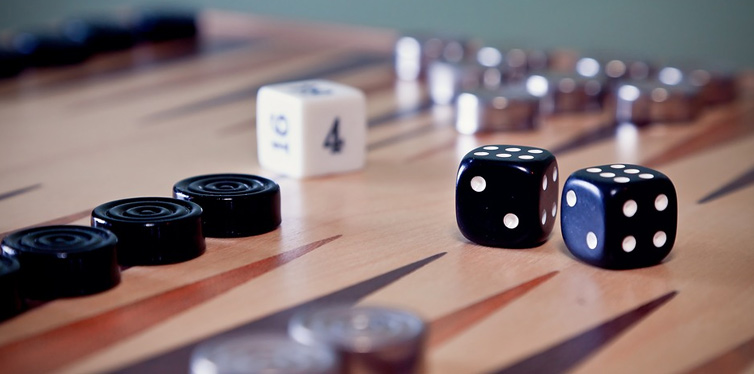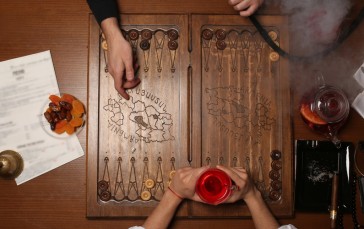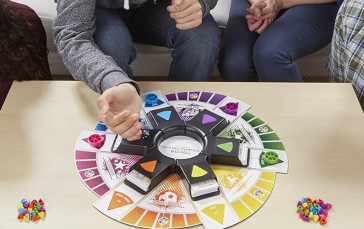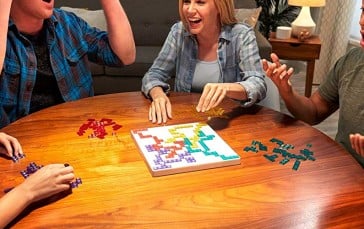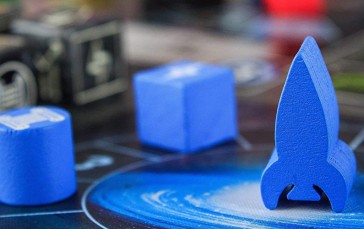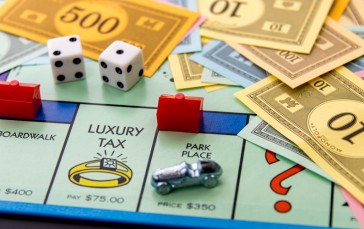Board Games History
Board games are a staple of any household, and if you think back to your childhood, it’s likely some of your fondest memories are of you, your family, and your friends huddled around a table rolling dice and jumping squares. Titles such as Clue, Monopoly, and Sequence all play a part in the amazing history of board games, but it didn’t begin with colorful boards and little metal trinkets. In fact, board games and their origins stretch further back than you might expect.
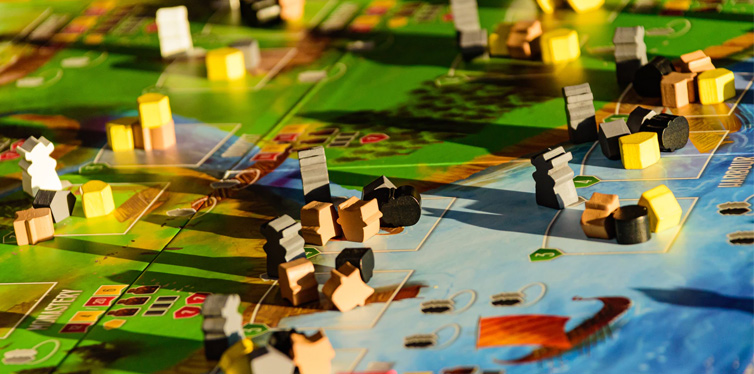
The Beginnings
We can trace the beginnings of board games back thousands and thousands of years, and the oldest type of board game in the world is believed to be an Egyptian one known as Senet that was played in 3100 BCE.
No one is entirely sure how the game worked, and there are varying schools of thought regarding the rules, with a general idea pieced together by fragmentary texts discovered in tombs where the game was depicted on hieroglyphs. It is thought the game was based mostly around luck, which also lends credence to its connection to the afterlife.
You can find modern interpretations of Senet today, but with most people still unsure about how it was played in Ancient Egypt, these versions cannot be truly considered a true lineage of the original game, and some may even consider that it shares similarities in name only.
There is also evidence of board games in ancient Arabic countries, including Ur, in Iraq, which dates back to 3000 BC, too. These games were typically simplistic and used only boards, die, and counters.
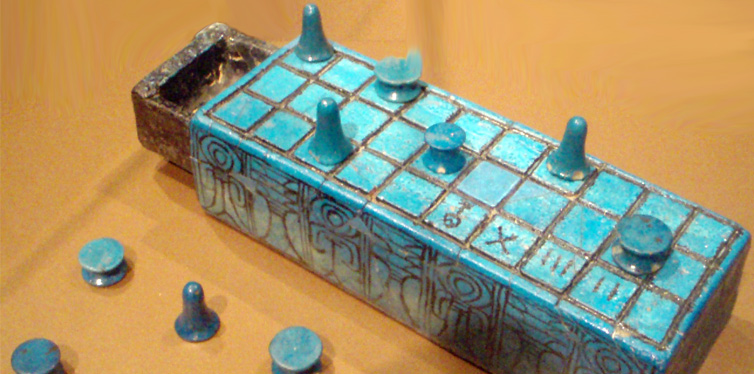
Romans, Vikings, And Beyond
At the turn of the millennium, there is a lot of evidence of board games becoming more widespread, although it’s not clear whether this developed naturally or from outside influence from existing civilizations.
Games such as Go and Liubo and Backgammon deserve a mention and have their roots in first millennium Chinese culture. While Go is not the oldest game in history, many board game scholars believe it is the oldest game that has been played continuously since its inception, as the game that is played now is the same as was played over a thousand years ago. It is one of the most popular games in the world, with over 46 million people knowing how to play it worldwide.
In Europe, instances of 2 player board games have also been found stretching back to Roman times. During this period, they played a game called the Twelve Line game, which shares many similarities with modern Backgammon. However, it is not entirely similar, and it is also no longer played.
After the Romans, the Vikings and Saxons also show proof of playing board games. Discoveries of wealthy Saxon settlements show evidence of playing Chess, which despite being one of the most famous games of all time, was only invented in the 6th or 7th century. We do not know where Chess was invented, but we generally assume it to be India, and there is evidence of it being played in Europe by the 900s.
How these games spread across continents is not known, but given the exploratory nature of such civilizations, it would not be surprising to consider them encountering each other at some point and passing the games on, which is a much happier thing to think the colonization and pillaging.
A game known as Hnefatafl, which translates from Norse into The King’s Table is one of the earliest instances of strategy games, and in this game, you were tasked with protecting your king, which isn’t that different from chess and also shares similarities with many modern games.

The Middle Ages
Speaking of chess and similar games like draughts (or checkers, depending on where you’re reading this), board games became more accessible as time went on. During the Tudor times, they proved popular among all levels of society. Divers came across a Backgammon set in the wreckage of the doomed Mary Rose, and there is also evidence of Fox and Geese, and Nine Men’s Morris, which was particularly enjoyed by poorer citizens.
Nevertheless, this accessibility appears to be a precursor for how board games were viewed by the public.
Modern Times
Both solo board games and family board games persisted throughout the 18th Century, and this also saw the solidifying of Dominoes, which can trace its roots much further back than the 1700s, but the current form has most in common with this time.
While most of the board games of the past were simple strategy games, or even those based purely on luck, it wasn’t until the mid-1700s where narrative elements were introduced in the form of A Journey Through Europe or The Play of Geography.
This was the first time a story has been used to move the gameplay along, and it is likely the game that paved the way for modern story-based games that we love today such as Clue, with the story needing to pull you in while also balancing reliable and logical gameplay to ensure everyone has a good time.
Now we have a plethora of board games everywhere we look. From classics like Monopoly and Scrabble to more recent games such as Catan, Dungeons and Dragons, and Eldritch Horror, there is something for everyone.
What was formerly a niche pastime for some has exploded, and this has had help from board game bars and cafes, but you can’t give all the credit to these, and in fact, you could argue they are a product of the nostalgia-obsessed personalities of the current generation. This isn’t a bad thing, though.
The rise of the internet has also given us the chance to play our favorite board games without even leaving the house. Online Chess, Scrabble, and more allow you to test your skills against people all over the world, all for the enjoyment of your favorite games.

Pass Go And Collect
We’ve come a long, long way from the simple roll-the-dice aspect of the earliest board games, and it seems the industry will only get larger. In fact, there’s so much choice nowadays that even the most passionate board game fan will find something new. Just like brand new books by your favorite authors, follow-ups to long-awaited movie franchises, and the next generation wonders of amazing consoles, board games will always be appealing.
Sources:
- What Is The Oldest Board Game – History Answers
- A History Of Board Games – Local Histories


